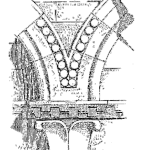
As we continue to find and improve ways to master our environment, accomplish tasks, communicate, move, heal, etc. we continue to discover new materials, processes, and products. Emerging technologies often promise
- lower costs
- new functions
- lighter weight
- easier to use
They also may last longer.
As a minimum, they should last long as current solutions or longer or provide another compelling reason to use the new technology.
Understanding reliability of emerging technology
One question I heard during a project involving a new material was, “How can we know how long it will last, it’s a new invention?”
Good point. The material or technology may have only existed a few days. Or if used in a new application, likewise a short time. The long term reliability is unknown. Or is it?
Let’s explore a few considerations as we consider emerging technology reliability.
Failure mechanisms
One of the ways products fail is due to some chemical or adverse physical change. I think of failure mechanisms as the fundamental way products fail. A metal contact corrodes (a chemical reaction) and opens a circuit.
We know a lot about failure mechanisms. Emerging technologies probably contain many possible failure mechanisms based on the materials and contraction. Using tools like FMEA we can identify the potential problems and address them.
For truly new materials, a discovery process like HALT may be useful. We need to explore the new material over a range of stresses to determine it’s reaction. We’re looking for an adverse reaction.
For emerging technologies, we draw on our experience to determine potential failure mechanisms. With prudent testing, we may discover additional mechanisms, or find the boundaries of known mechanisms.
Failure modes
How a product fails is how the customer realizes it’s not working. Failure modes range from explosions to hardly noticeable as a minor degradation in performance. New technologies bring new features and failure modes.
Ideally, the emerging technologies fail safely, and that may or may not be the case. When lithium-ion batteries became prevalent, we discovered that a puncture could rapidly release the battery’s energy. We also learned about charging cycle control and manufacturing controls.
During development of a new product, it is the task to determine how the many possible failure mechanisms will manifest themselves as failure modes. Again tools like FMEA and HALT become important as we reveal and understand the new potential failure modes.
Environment
Part of any reliability goal is the intended environment. Where will the product be used? This includes the weather (temperature, humidity, dust, fungus, etc.) and use-profile (how often per day, number of cycles per hour, etc.) The environment will have an impact on a product and may increase or decrease the chance of specific failure mechanisms occurring.
While it is nearly impossible to explore every variation in the environment, understanding the failure mechanisms permits us to focus our study on the elements that have the greatest impact. We generally do not have time to explore every nuance of temperature and humidity combinations, so understanding the intended use and locations we can explore the most likely combinations than the margins before failure.
Setting and testing individual conditions is a waste of time unless there is a clear connection to underlying failure mechanisms. Just because the product works for a few hours at -40°C and 40°C is meaningless, unless there is a reason to believe the product will only experience a few hours of exposure to these temperatures. What if the dominant failure mechanism is diffusion related and retarded at low or high temperatures? By exploring the diffusion failure mechanisms at the nominal temperature, we may be able to learn something.
It is the connection of each test or exploration to failure mechanisms and failure modes that drive what we need to know about and control during testing. Emerging technologies provide the unique situation of new materials, assemblies, combination of features, use applications, and environments. We have little or no experience with the technology directly in the product’s form. We still can create reliable products with a little focus on failure mechanisms, failure modes, and the environment.
How do you deal with the new elements of a product in your reliability program?
Related
Reliability as Part of Every Decision (article)
Reliability Engineering is More Than Tools (article)
Building a Reliability Plan (article)
Leave a Reply